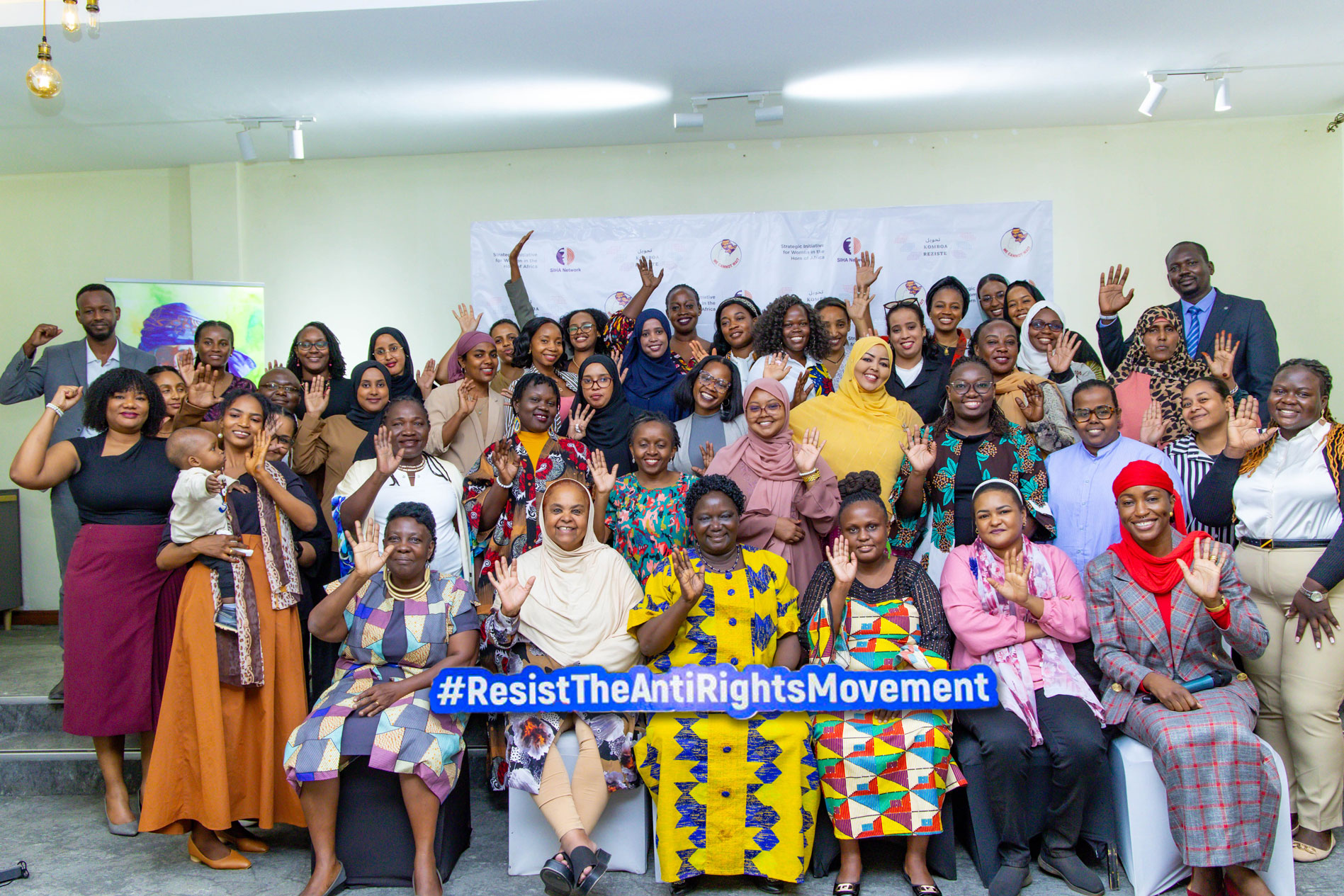
We, the women’s and human rights activists, government actors, legal scholars, and religious leaders from Djibouti, Ethiopia, Kenya, Somalia, Somaliland, South Sudan, Sudan and Uganda, gathered in Kampala for a Regional Convening on Family Law Reform hereby:
Express deep concern over the enduring gender bias embedded in family laws, structures, and systems across the East and Horn of Africa, which continue to be shaped by patriarchal norms, outdated legal frameworks, the misuse of religion, and harmful customary practices – often interpreted in ways that contradict national, regional, and international legal commitments to women’s rights and gender equality.
Note with apprehension the compounded and intergenerational impact of discriminatory family and personal status laws and practices on women and girls; including restrictions on access to education, employment, and economic independence; limitations on property ownership and inheritance; unequal access to wealth and resources; and barriers to leadership and decision-making roles. These laws not only undermine the status of women and girls in society but also disregard their vital contributions to economic development, stability, and peace within their families and communities.
Strongly condemn the intensifying and coordinated backlash against women’s rights, driven by anti-rights and anti-gender movements. These efforts threaten legal protections for women and girls, undermine hard-won gains by women’s rights activists and organizations, erase the history of their struggles and achievements, and seek to silence feminist voices, human rights activism, and grassroots movements.
Express serious concerns regarding the prolonged delays and stagnation in the enactment of Family Law Bills across the region. In countries such as Uganda, Somalia, and South Sudan efforts to reform laws governing marriage, divorce, custody, and inheritance have either been obstructed, politicized, or stripped of essential gender protections.
Following constructive dialogue and rigorous analysis over the past two (2) days, we put forward the following recommendations that will ensure the enactment of inclusive, gender-responsive family law frameworks in the East and Horn of Africa.
Governments and Legislators in Uganda, Somalia, South Sudan, and Somaliland
- Immediately enact pending Family Law Bills, ensuring alignment with regional and international human rights instruments, such as the Protocol to the African Charter on Human and Peoples’ Rights on the Rights of Women in Africa (the Maputo Protocol) and the Convention on the Elimination of All Forms of Discrimination Against Women (CEDAW).
The Government of Somalia
- Ratify, domesticate, and implement the Maputo Protocol and CEDAW, to which most countries in the East and Horn of Africa are already signatories.
Civil Society Organizations
- Actively counter anti-gender and anti-rights rhetoric and agenda, which undermine decades of feminist progress and perpetuates systemic inequality through public awareness, and strategic advocacy and litigation.
Religious and Cultural Leaders
- Collaborate with women’s rights activists and organisations to engage in a positive discourse on the interpretation of religious texts to promote gender justice and foster inclusive dialogue that uphold tenants of justice and human dignity.
The African Union (AU) and Intergovernmental Authority on Development (IGAD)
- Leverage the institutional mandate and political influence to prioritize and coordinate regional action on family law reform.
- Facilitate member states accountability on women’s rights and gender equality through periodic reviews, to ensure harmonization of legal standards across the region
- Ensure women’s rights organizations and women rights activists are meaningfully included in regional policy making and monitoring mechanisms.
The International Community
- Strengthen civil society and women’s rights movements by providing sustained financial, diplomatic, and technical support to advance family law reform and resist regressive opposition.
Special recommendation on Sudan
The ongoing conflict has exacerbated inequalities within families, with dysfunctional legal structures further hindering access to justice; particularly for women and girls. In this context, the international community, together with regional actors such as the AU and IGAD, should:
- Engage warring parties to urgently end the conflict, which has disrupted family structures and escalated conflict related sexual and gender based violence within families.
- Ensure that peace processes and post-conflict legal reforms explicitly prioritize the restoration and protection of women’s and girls’ rights within the family, including safeguards against sexual and gender-based violence, and the guarantee of equal rights in marriage, child custody, property ownership, and inheritance.
- Support the establishment of a stable and inclusive governance system in Sudan that upholds women’s human rights and commits to enacting equitable and gender-just family laws aligned with regional and international legal frameworks such as the Maputo Protocol and CEDAW.
Signatories:
- Addis Powerhouse
- Association for Women’s Sanctuary and Development (AWSAD)
- Musawah
- Muslim Centre for Justice and Law (MCJL)
- Siraad Initiative
- Somali Women Development Centre (SWDC)
- Somali Women Vision
- Strategic Initiative for Women in the Horn of Africa (SIHA) Network
- Women Initiative, Djibouti
- Voices of Somali Minority Women (VOSOMW)
- Women and Youth Empowerment Initiative
- Women Ignite South Sudan
- Young Women’s Christian Association (YWCA), South Sudan
The Regional Convening on Family Law Reform, held in Kampala, Uganda from 28th to 29th May 2025, was made possible through the generous support of the KOMBOA and We Cannot Wait projects, and was coordinated by the Africa Family Law Network.
